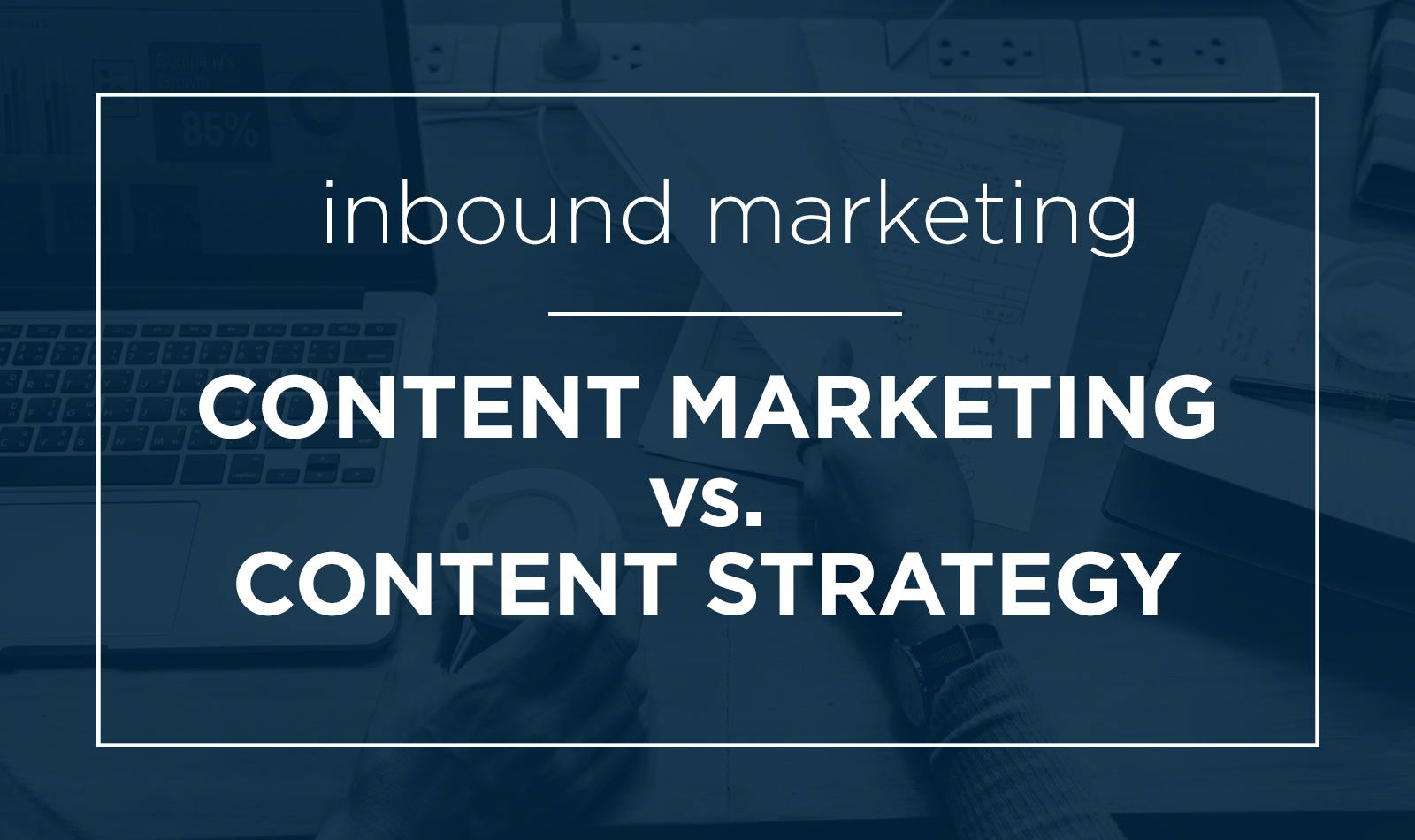
In today’s world where content is king, there are countless ways to define what the word content means. And, it’s possible you’ve heard some form of “we need content, and we need it now!” before.

Within the surge of content production, the terms content marketing and content strategy have been used a lot (some may even say overused). And while they may sound simple, the concepts of content marketing and content strategy can be quite confusing to wrap your head around, especially if you’re not in the marketing industry.
So, how do you define content marketing and content strategy, and what is the difference between the two? We’ll cover this and offer some insight into why you need both for an effective marketing plan.
What is content marketing?
According to HubSpot, content marketing is “a marketing program that centers on creating, publishing, and distributing content for your target audience—usually online—the goal of which is to attract new customers.”Ultimately, the goal of content marketing is to build and nurture relationships with your customers. With content marketing, you will divide your audience into specific segments, or personas, which will then help you deliver relevant content to the right people.
The format of your content will vary based on the topic and target persona, as well as where they are in the buyer’s journey. Sometimes it’s easier to understand content marketing when you think of it as the deliverables it's made up of, which may include the following:
- Blog posts
- E-books
- Case studies
- White papers
- Social media
- Podcasts
- Videos
By delivering content in these various formats to the right people at the right time, you will deepen the relationships between you and your customers.
Consider this example: you run a travel agency and write a blog post about the top destinations for a family vacation. This educational topic is relevant to one of your personas, say the mother of several children who plans to bring her entire family along on her next trip. By giving her ideas of where to take the family, you provide educational material—which may not result in an immediate lead—but helps nurture your relationship by proving you are an expert in the topic of travel. Next time she thinks about scheduling that vacation, your blog post may pop up in her head and convince her to contact you for help booking.
Now that we’ve defined content marketing, how is it related to content strategy?
Content marketing exists as one piece of your overarching content strategy. You can have one without the other, but it can make things more difficult and will not be as rewarding.
What is content strategy?
HubSpot defines content strategy as “the piece of your marketing plan and development that refers to the management of pretty much any tangible media that you create and own—written, visual, downloadable—you get the picture.”
A content strategy will serve as the plan behind your content marketing deliverables. Without proper planning, the performance of your content marketing could suffer. A well-thought-out content strategy will address the reasons for publishing content, as well as create guidelines for you and your team to follow.
Search Engine Journal does an excellent job of outlining the high level questions your content strategy should answer:
- Why should the content be published?
- Where are we going to publish this content?
- When should we roll out this content to viewers?
- Who do we want to see it?
- What reaction are we hoping to receive from the content?
- What in the world do we do with the content after we’ve published it?
After you answer those questions, you can get into more specific ones that address things like the type of content your personas are interested in consuming and how they’ll consume it, as well as more administrative tasks like who will oversee the publishing and maintenance of your content.
Moz suggests approaching content strategy as a story, by “taking elements of fiction and using them to get a fresh perspective on a brand's journey toward a goal.” This includes taking a deep dive into what your content currently looks like, what its future state should be, who will oversee its production, how to measure success, and more.
Why content marketing and content strategy are imperative to success
Creating content for the sake of content isn’t enough anymore.
Your customers want to see content they can relate to, and if it’s not the right message at the right time, you’ll risk coming off as disruptive—thus damaging your relationship—and maybe even losing your contact altogether.
Think of content marketing as the creative portion of your efforts, and content strategy as the, well, strategic side. Both can exist on their own, but they may not do any good if they don’t work together.
Still not convinced content marketing is for you? Consider this statistic:
“B2B marketers that use blogs receive 67% more leads than those that do not.” – Huffington Post

If you’re not taking advantage of content marketing tactics, you’re likely missing out on the opportunity to garner more leads. And, all those leads you’ll collect with content marketing will be more educated than ever before (that makes the jobs of your marketing and sales teams easier!).
Do you have thoughts or questions about content marketing and/or content strategy? Leave us a note below, we’d love to hear from you!


